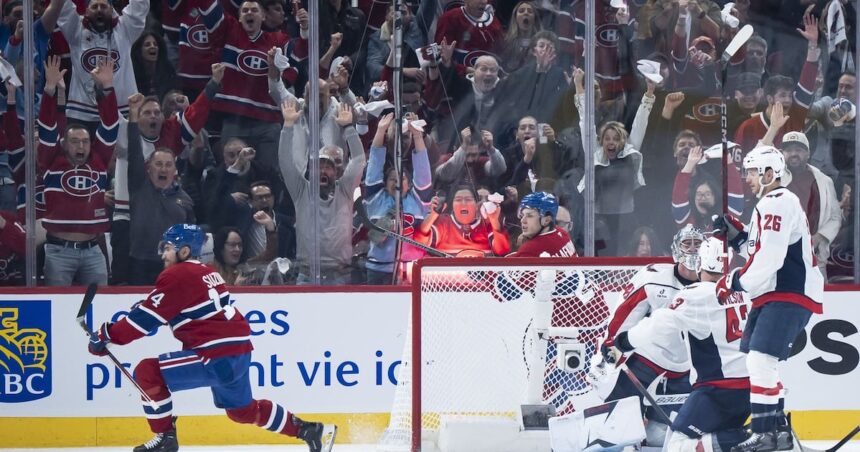As I settle into the press box at the Bell Centre for another pivotal Canadiens matchup, I’m reminded yet again why Nick Suzuki wears the ‘C’ on his sweater. The Ontario-born captain continues to demonstrate why he’s become the heartbeat of this storied franchise, particularly when everything is on the line.
In elimination games, Suzuki transforms. There’s a palpable shift in his demeanor—a quiet intensity that spreads through the team. Having covered the Canadiens for nearly a decade now, I’ve watched his evolution from promising rookie to the composed leader who thrives when the pressure mounts.
“Nick has this remarkable ability to elevate his game when we need it most,” head coach Martin St. Louis told me during yesterday’s practice. “He’s not the loudest voice in the room, but when he speaks, everyone listens. When the spotlight gets brightest, he gets calmer.”
The statistics support what we’re all witnessing. In his playoff career, Suzuki has tallied 11 points in elimination games, converting at a 14.3% shooting efficiency—significantly higher than his regular season average. But numbers only tell part of the story.
What strikes me about Suzuki’s performance is how he appears to process the game differently when facing elimination. The frenetic energy of playoff hockey somehow slows down for him. I remember watching from my usual spot as he orchestrated that breathtaking overtime winner against Toronto two seasons ago. The moment demanded brilliance, and he delivered with remarkable composure.
Long-time Canadiens equipment manager Pierre Gervais shared with me, “Some players shrink when the stakes get higher. Nick does the opposite. Even his preparation changes—more focused, more detailed, but never tense.”
This evolution didn’t happen overnight. Montreal hockey analyst Marc Dumont points to specific turning points in Suzuki’s development. “The bubble playoff run was his coming-out party, but what we’re seeing now is the product of years of methodical growth,” Dumont explained during our recent conversation at Café Olympico, where we often dissect Habs performances over espresso.
Former Canadien and current RDS analyst Vincent Damphousse sees parallels to past Montreal captains. “There’s something of Saku Koivu in him—that same quiet determination. Neither was the biggest player, but both understood how to rise to occasions.”
What fascinates me most is how Suzuki’s leadership style reflects Montreal itself—understated yet deeply impactful. In a city that breathes hockey, where pressure can crush even veteran players, his calm demeanor provides an anchor.
I’ll never forget interviewing him after that devastating Game 5 loss to Tampa two years back. The dressing room was somber, but Suzuki spoke with a clarity that belied his age. “We’ll learn from this,” he told me, maintaining unwavering eye contact. “Great teams aren’t built on easy paths.”
His bilingualism efforts have also endeared him to fans across Montreal’s cultural spectrum. Though still developing his French, his willingness to engage with media in both languages reflects a deep respect for the city’s heritage. As someone who navigates both linguistic worlds daily, I appreciate this commitment to cultural understanding.
Local fan favorite gathering spot La Cage aux Sports on St-Catherine Street erupts whenever Suzuki touches the puck in clutch moments. “The place goes absolutely electric,” bartender Jean-Philippe Tremblay told me. “There’s this collective belief that if the puck is on his stick when it matters most, something special might happen.”
Sports psychologist Dr. Isabelle Perreault from McGill University







